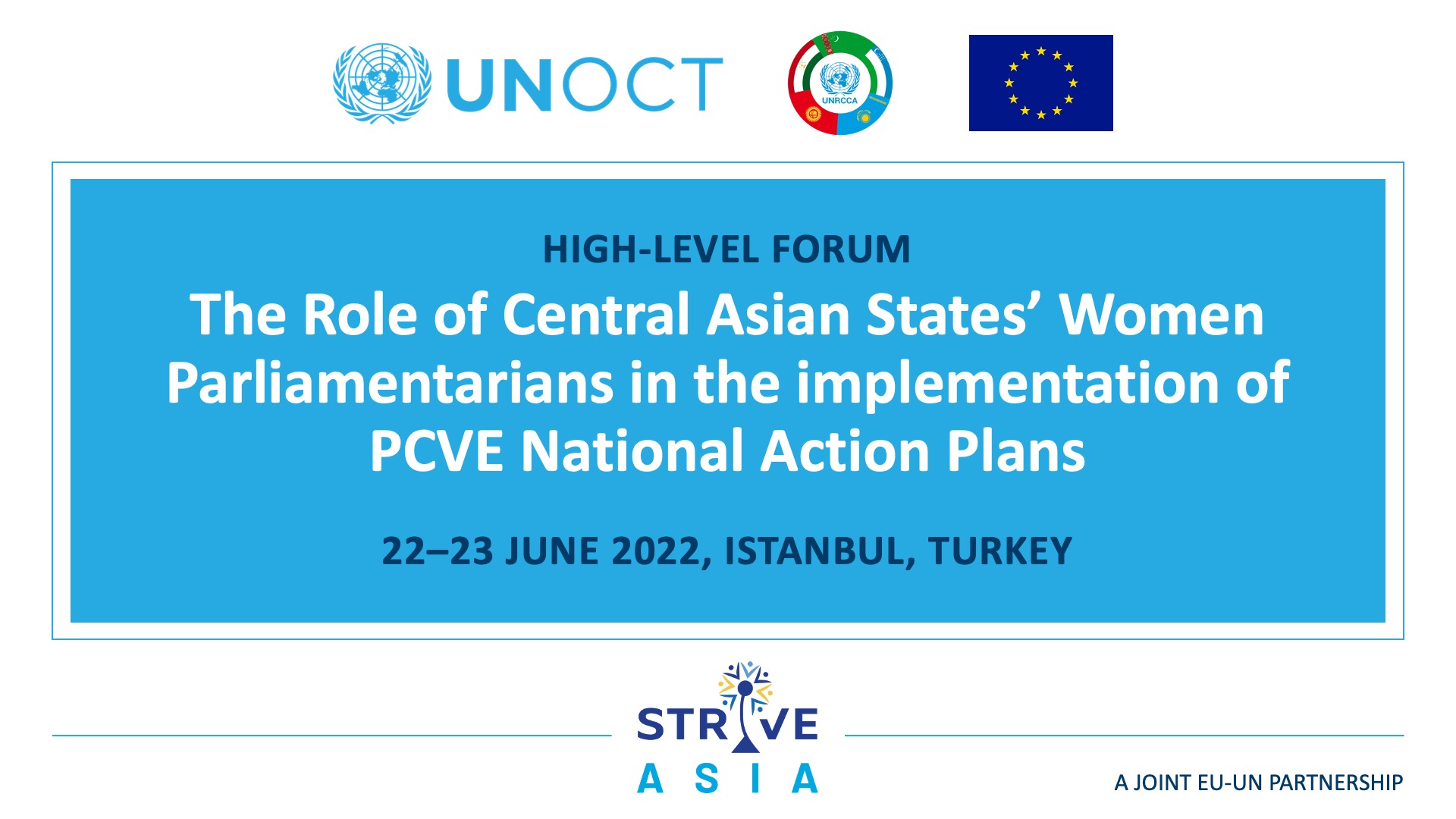High-Level Forum on the Role of Central Asian States’ Women Parliamentarians in the implementation of PCVE National Action Plans
On 22-23 June, the United Nations Office of Counter-Terrorism (UNOCT) convened the “High-Level Forum on the Role of Central Asian States’ Women Parliamentarians in the implementation of PCVE National Action Plans” in Istanbul, Turkey. The forum was organized in partnership with the Central Asian States, namely Kazakhstan, Kyrgyz Republic, Tajikistan, Turkmenistan and Uzbekistan.
This event gathered 105 participants, 73 in-person in Istanbul, which included High-Level Women Parliamentarians from Central Asia, and 32 participants joining virtually. It brought together women parliamentarians, of all five Central Asian States, representatives of Inter-Parliamentary Assembly Commonwealth Independent States, Turkic Speaking Parliamentarian Assemblies (TURKPA), officials from international UN WOMEN, UNDP, UNODC and OSCE, several leading scholars in the field of gender mainstreaming and PCVE, and representatives of civil society organizations (SCOs).
The first day focused on presenting the existing UN architecture and incorporating gender perspectives in national action plans (NAPs) to prevent and counter violent extremism (PCVE) NAPs and related programmes. It also provided an opportunity for Central Asian Women Parliamentarians to reflect on their PCVE engagement in their respective countries. The second day of the event was dedicated to discussions with SCO on various thematic areas to initiate the drafting of a roadmap to enhance women’s engagement in the implementation of PCVE NAPs in Central Asia.
The Forum was launched under the EU-UN Programme on Strengthening Resilience Against Violent Extremism in Asia (STRIVE Asia) and with the support of the regional joint UNOCT-UNCCT project “Towards a comprehensive implementation of the United Nations Counter-Terrorism Strategy in Central Asia – Phase IV”. The Forum was also supported by the United Nations Regional Centre for Preventive Diplomacy for Central Asia (UNRCCA), UNOCT’s Human Rights and Gender Section, and the Doha Office for Parliamentary Engagement. The event was made possible with the generous contributions of European Union and the Kingdom of Saudi Arabia.


